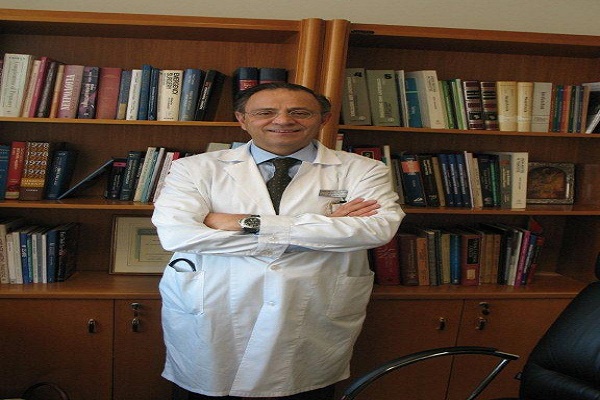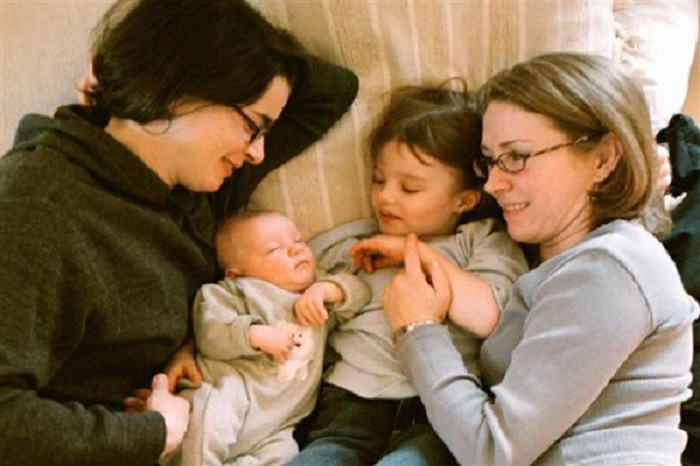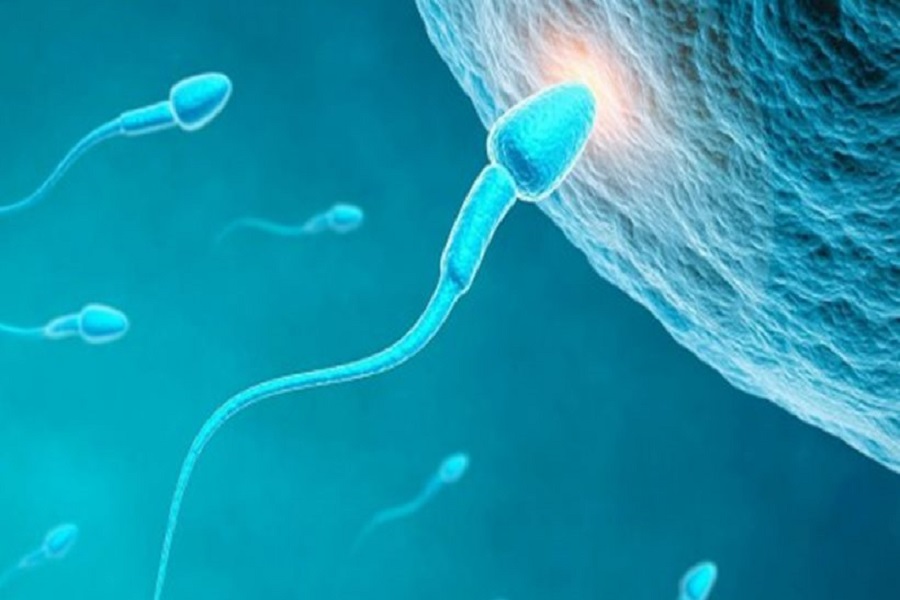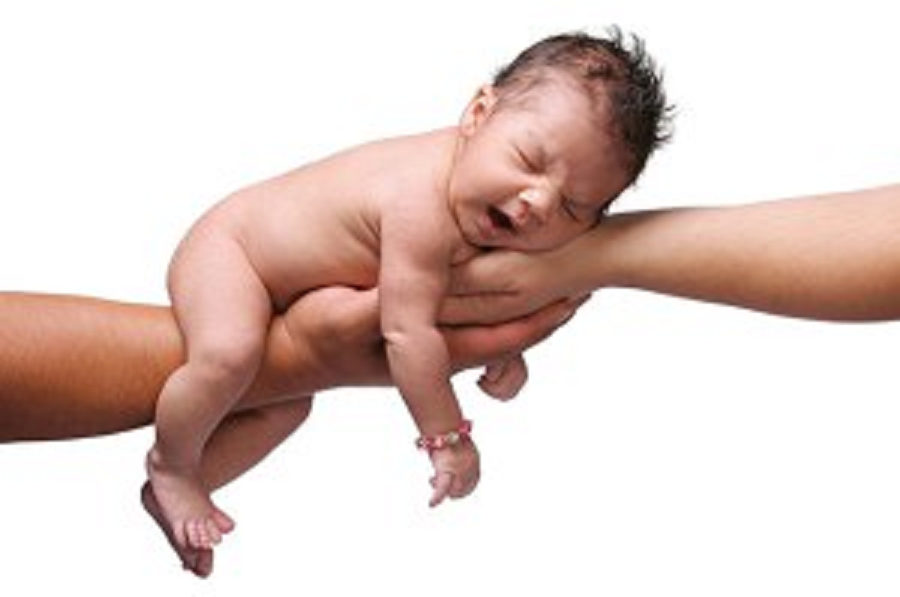News
British mum, 59, in bid for world medical first: I'll give birth to baby of my dead daughter
Published on: 22/03/2015
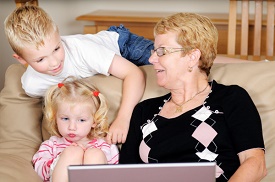 A British woman is staging a desperate legal bid to become pregnant with her own grandchild – using her dead daughter’s eggs.
A British woman is staging a desperate legal bid to become pregnant with her own grandchild – using her dead daughter’s eggs.In the first case of its kind in the world, the woman, 59, and her husband will claim it was their daughter’s dying wish that her eggs be fertilised by donor sperm and implanted into her own mother’s womb. It would be the couple’s only chance to become grandparents after their daughter, an only child, died of bowel cancer four years ago while still in her 20s.
She chose to freeze her eggs in the hope that she could have children in the future, but tragically lost her battle with the disease. No UK-based clinic has agreed to treat the mother, who is now hoping to export the eggs to New York, where a clinic is lined up to provide fertility treatment at an estimated cost of up to £60,000.
At her age, the woman’s chances of becoming pregnant using the eggs are small.
There are potentially large risks to her health, and the health of the unborn child, if fertility treatment succeeds.
However, the woman and her 58-year-old husband say they are determined to honour their daughter’s wishes and the case is now set to be decided by a judge.
If successful, the woman would be the first in the world to give birth to a baby using eggs from her dead daughter, experts believe. Dr Mohammed Taranissi, who runs the ARGC fertility clinic in London, said: ‘I have never heard of a surrogacy case involving a mother and her dead daughter’s eggs. It’s fair to say that this may be a world first.’
The Human Fertility and Embryology Authority (HFEA) has already refused the couple’s application to export their daughter’s frozen eggs to America, on the grounds that she did not give clear written consent.
But her parents are now preparing to challenge the ruling in the High Court. They claim their daughter told them shortly before her death that this was what she wanted.
However, politicians and campaigners criticised plans to bring a baby into the world long after their biological mother has died.
David Davies, Conservative MP for Monmouth, said: ‘I can’t understand why anyone would want to do that. I would have grave concerns about any permission being granted by the HFEA or the courts. It’s potentially rather disturbing.’
Josephine Quintavalle, from campaign group Comment on Reproductive Ethics, acknowledged there would be sympathy for the mother’s loss, but said it would be ‘impossible not to feel very uncomfortable’ if the procedure was allowed to go ahead. She said of the potential grandmother: ‘Her daughter is irreplaceable and should be mourned as such.’
But Annie Casserley, 62, who acted as a surrogate for her own daughter, said: ‘If that was her daughter’s wish and she wants to honour that wish then it’s absolutely her choice.’
Women who have gone through the menopause are still able to bear children using donor eggs and sperm. However, obstetricians say the risks associated with pregnancy, such as miscarriage, are greater.
The full details of the controversial case are revealed in minutes of the HFEA’s Statutory Approvals Committee, which has so far rejected three attempts by the couple to secure permission to use the eggs.
The Mail on Sunday is aware of the family’s identity, but will respect their wish to remain anonymous. Last night lawyers for the family declined to comment, saying they considered the case to be private.
The documents reveal the couple’s daughter was diagnosed with bowel cancer at 23 and chose to freeze and store three of her eggs at IVF Hammersmith in West London in 2008.
She completed a form which gave consent for the eggs to be stored for use after her death, but crucially, failed to fill in a separate form which indicated how she wished the eggs to be used. This technically meant her consent became invalid.
She died in 2011 without leaving further instructions. She was single. The minutes reveal the ‘strongest and only evidence’ of her wishes was a reported conversation with her mother while she was in hospital in 2010. The young woman is said to have asked an unnamed doctor whether someone with a stoma such as herself could carry a child. The doctor confirmed it was possible.
But, the mother says, it was then agreed that if her daughter could not carry a child ‘I would do it for her’. The minutes say the young woman wanted her mother to ‘carry her babies… in the context of her not expecting to leave hospital alive.’
The couple approached fertility clinics after their daughter died. They hoped to create embryos using standard IVF treatment from their daughter’s eggs and sperm from an anonymous donor. However, no UK clinics were prepared to carry it out.
Generally, fertility clinics will not treat women over 50 because of the limited chances of success and the extra risks involved.
Despite this, the HFEA committee was not required to consider the mother’s age in this case because the issues solely surrounded whether her daughter consented to her eggs being used in such a way. The couple have now been approved for treatment by a US clinic, New York Fertility Services. The minutes say: ‘Although it is stated that the chances of [the woman’s mother] becoming pregnant are “very small” and that “any complications could be life threatening”, the couple say that they are determined to “honour their daughter’s wishes”.’
The application for permission to export the sperm was made to the HFEA by IVF Hammersmith, which is storing the eggs. It treats both NHS and private patients and is based within Hammersmith Hospital in West London.
Applications in November 2013, March 2014 and August 2014 were rejected. Minutes from the HFEA committee say they are ‘sympathetic’ to the parents’ views, but that they did not provide enough evidence for the export to be agreed.
The HFEA confirmed the case will now proceed to judicial review. It will be heard in the Administrative Court, a division of the High Court, at a date to be set.
If this final legal bid fails, the eggs will be destroyed in February 2018, ten years after they were stored.
Professor Simon Fishel, managing director of Care Fertility clinics, said the only similar case involved a British mother who attempted to use her dead daughter’s already fertilised embryo – but that bid failed.
However he believed the latest case was ‘little different’ in ethical terms to that of Diane Blood, who in 1997 won a legal fight to use her dead husband’s sperm to try to conceive a child.
He said: ‘One argument is this: if the family feels it’s right for them, whose right is it to interfere?’
But he said other factors should be taken into consideration.
The HFEA said it did not know of any other cases where a woman had given birth to a child using her deceased daughter’s eggs. However, it added that it would not automatically be informed if adequate consent had been provided and if an export licence was not needed.
A spokesman declined to comment further on ‘an on-going case’. Imperial NHS Trust, which runs IVF Hammersmith, also had no comment.
Source: Macfarlane J., Adams S. (2015) “British mum, 59, i
- Published on: 28/06/2016
- Gov. John Bel Edwards has reversed course from his predecessor and agreed to create regulations governing surrogacy births in Louisiana. Read more
- Published on: 18/05/2016
- Experts point out that serious questions are raised regarding the birth of a child by an elderly woman Read more
- Published on: 18/05/2016
- A controversial geneticist, Severino Antinori, who became known for helping women over 60 years old to become pregnant, was arrested for stealing eggs from a patient. Read more

